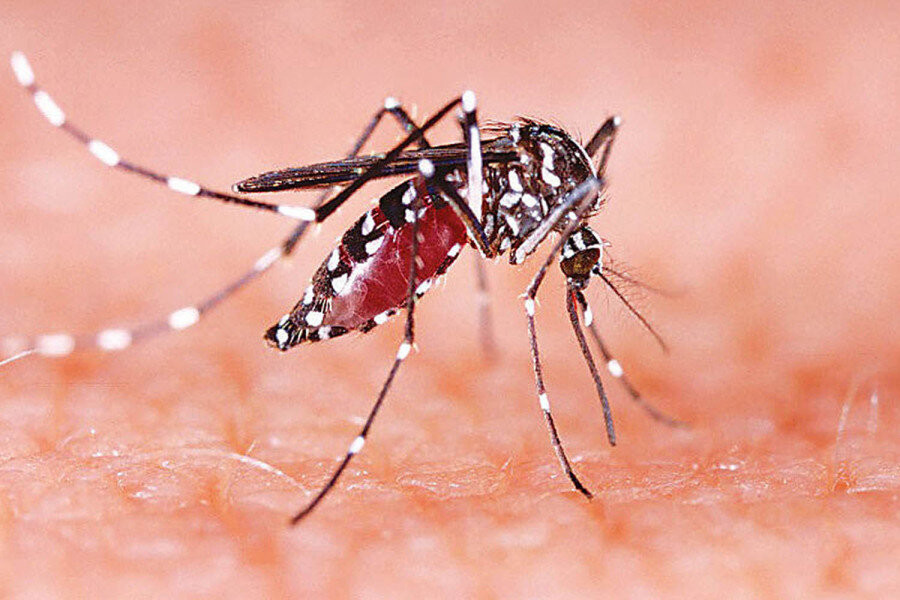Health
Dengue raises risks of premature birth, low birth weight, doctors warn
Pregnant women are at higher risk of severe dengue and death because of weakened immunity.
Arjun Poudel
On Sunday, a pregnant woman in her third trimester was rushed to the emergency department of Thapathali-based Paropakar Maternity and Women’s Hospital, as she had been suffering from high-grade fever.
Doctors at the hospital found that the woman had dengue and her platelet count was dangerously low.
“We have seen several cases of dengue complications in pregnant women in recent days,” said Dr Shree Prasad Adhikari, director at the Hospital. “The risk of premature birth, low birth weight in newborns, and several other complications increases if pregnant women are infected with the dengue virus.”
Dengue is a mosquito-borne disease transmitted by female Aedes aegypti and Aedes albopictus mosquitoes. The same vector also transmits chikungunya, yellow fever, and Zika viruses, according to the World Health Organisation.
Of late, hospitals in the Kathmandu Valley have reported an upsurge in the number of dengue infection rates.
At least nine deaths and over 20,000 infections have been reported from all 77 districts across the country. Experts say reported dengue cases may only represent a small fraction of the true scale of the outbreak, as around 90 percent of the infected people do not show any symptoms.
With a recent surge in the infection rates, the number of pregnant women contracting this deadly virus is also rising alarmingly. Maternal health experts are particularly concerned as viral infections during pregnancy can lead to severe complications that increase the risk of maternal and newborn deaths.
“Although we have not yet recorded any maternal and newborn deaths due to dengue infection, we have seen several cases of premature births and low birth weight,” said Adhikari. “Due to low platelet counts, we have transfused blood to several patients.”
Maternal health experts say that due to weakened immunity, the chances of pregnant women getting severe increase manifold, and the risk of mortality rate also increases. Compared to normal people, pregnant women are at high risk of getting severe dengue infections, according to them.
“Pregnant women could have a prepartum haemorrhage, which can lead to preterm delivery,” said Dr Sunil Sharma Acharya, a physician at the maternity hospital, Thapathali. “Effects on the liver could be exacerbated by dengue. Dengue infection during pregnancy also increases the risk of miscarriage.”
Experts say that high-grade fever and medicine used for the treatment of fever could lead to preterm labour, contractions and preterm birth. Excessive bleeding during delivery or within 24 hours after childbirth transmission of infection to newborn babies also increases the risk of maternal and newborn deaths.
Nepal reduced the maternal mortality rate from 239 per 100,000 births in 2016 to 151 per 100,000 in 2021, according to the national census carried out by the National Statistics Office.
Earlier, the country had reduced the maternal mortality rate from 539 per 100,000 births in 1996 to 239 per 100,000 births in 2016—for which the country even received a Millennium Development Goals award.
The health target under the UN’s Sustainable Development Goals is to reduce the maternal mortality rate to 75 per 100,000 births by 2030.
The rise in dengue infection rate, from which pregnant women are also getting infected, alarmed the experts. They warned that the rise in dengue infection rate could increase maternal mortality. They asked pregnant women to consult doctors if they got infected with the dengue virus and cautioned them not to take over-the-counter drugs.
The post-monsoon period is considered a high transmission season for dengue, but Nepal has witnessed outbreaks of the deadly disease since the beginning of the year and across the pre-monsoon, monsoon, and post-monsoon seasons.
“Hundreds of people in the Kathmandu Valley might have been infected with dengue virus in recent days,” said Dr Sher Bahadur Pun, chief of the Clinical Research Unit at the Shukraraj Hospital. “As the post-monsoon period is the peak dengue season, neither the general public nor the authorities have taken the issue seriously, and the rise in infection rate was obvious.”
As there is no specific treatment for dengue, health workers provide symptomatic care and diagnose patients based on symptoms, including platelet-rich plasma transfusion.
According to doctors, mild to high fever, severe muscle pain, rashes, severe headache, and pain in the eyes are some symptoms of dengue.
The World Health Organisation (WHO) says there is no specific treatment for severe dengue, but early detection and access to proper medical care can save lives.




 19.12°C Kathmandu
19.12°C Kathmandu















